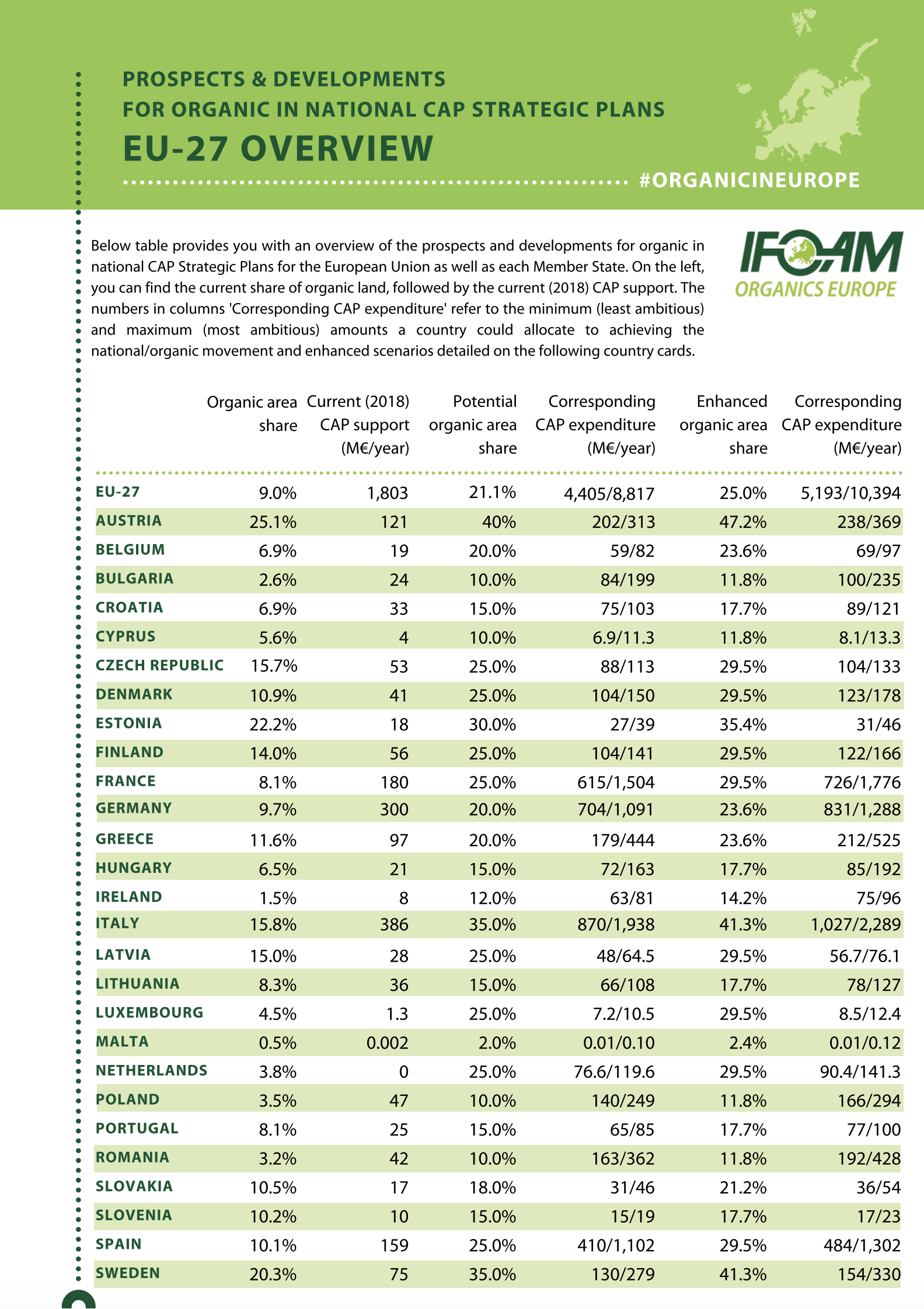Parliament approves disappointing new CAP – Organic needs environmentally ambitious national CAP Strategic Plans
BRUSSELS, 23 November 2021 – Today, the European Parliament’s Plenary adopted the new Common Agricultural Policy (CAP) (2023-2027) Regulation with 452 votes in favour, 178 votes against, and 57 abstensions. The CAP Strategic Plans Regulation leaves much flexibility to Member States, who urgently need to improve the environmental ambition of their national CAP plans and better support organic farming.
Jan Plagge, President of IFOAM Organics Europe, affirms: “The CAP (2023-2027) Regulation approved by the European Parliament today will, in itself, not make European agriculture greener. Direct payments are still largely based on hectares and will not prioritise rewarding farming practices delivering most environmental benefits. Member States should ensure that the so-called green architecture, such as ‘Eco-schemes’ and agri-environmental measures, incentivise conventional farmers to implement more sustainable farming practises and properly reward organic farmers for the benefits they deliver to the environment and society, in line with the principle of public money for public goods”.
Eduardo Cuoco, Director of IFOAM Organics Europe, adds: “Organic agriculture can contribute to many of the new CAP’s objectives to protect nature, improve animal welfare, empower farmers, and revitalise rural areas. Despite the disappointing new CAP Regulation, we cannot afford to waste seven more years. Member States still have the opportunity to level up the future CAP by drafting more ambitious Strategic Plans to address climate change and the collapse of our biodiversity”.
IFOAM Organics Europe calls on the European Commission to ensure Member States’ CAP Strategic Plans have set appropriate measures and budgets to boost organic production and demand, in line with the EU Action Plan on developing organic farming, during the review phase early 2022.
Ends.
For more information please contact:
Eric Gall, Policy Manager, +32 491 07 25 37, [email protected]
Amélie Steu, Policy Assistant on Agriculture and the CAP, [email protected]
or
Eva Berckmans, Communications Manager on +32 2 416 52 32, [email protected]
or visit www.organicseurope.bio
Background information
On 18 November 2021, IFOAM Organics Europe published a report assessing the measures and budgets to support organic agriculture in Members States’ draft CAP Strategic Plans (CAP SPs) and the outcome are not promising. The analysis, based on organic farmers associations’ feedback across 19 countries, shows that unless draft CAP national Strategic Plans are significantly improved in several Member States, the new CAP will not contribute to a significant development of organic farming in the EU.
On 29 June 2021, IFOAM Organics Europe commissioned a study which estimates the national targets for organic production and the budgets necessary to reach them. The report concluded the European Union should dedicate 3-5 times the current amount of CAP budget dedicated to conversion and maintenance of organic farming from 2023 onwards. Some Member States should dedicate 10 times more national budget to organic support measures, depending on their potential national target, baseline, and payments rates.

A study estimating national targets for organic production and budgets to reach them shows the EU should dedicate 3-5 times the current amount of CAP budget dedicated to conversion & maintenance of organic farming from 2023 on.

A report assessing the measures and budgets to support organic agriculture in Members States’ draft CAP Strategic Plans shows that draft CAP national Strategic Plans are to significantly improve to help organic farming in the EU develop.
IFOAM Organics Europe represents almost 200 member organisations in the EU-27, the EU accession countries and EFTA. Member organisations span the entire organic food chain and beyond: from farmers and processors organisations, retailers, certifiers, consultants, traders, and researchers to environmental and consumer advocacy bodies.

